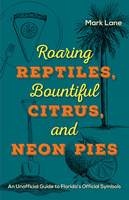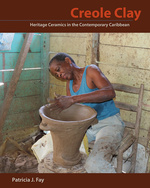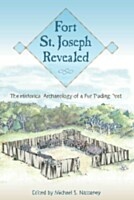The Rosewood Massacre
An Archaeology and History of Intersectional Violence
Roaring Reptiles, Bountiful Citrus, and Neon Pies
An Unofficial Guide to Florida’s Official Symbols
With an eye for the illogical and a flair for the irreverent, journalist Mark Lane aims his sharp wit at one of the most intriguing duties of the Florida legislature—signing state symbols into law. In Roaring Reptiles, Bountiful Citrus, and Neon Pies, he spotlights nineteen things that have been proposed and/or appointed to officially define Florida.
Sallie Ann Robinson's Kitchen
Food and Family Lore from the Lowcountry
Shaping Identity in Medieval French Literature
The Other Within
Contributors to this collection consider the multiplicity and instability of medieval French literary identity, arguing that it is fluid and represented in many different ways. Inherently unstable, identity is created, re-created, adopted, refused, imposed, and self-imposed. Additionally, taken together the essays posit that an individual may identify with a group, existing within it, and yet remain foreign to it.
Captain Kidd's Lost Ship
The Wreck of the Quedagh Merchant
The troubled chain of events involving Captain Kidd’s capture of Quedagh Merchant and his eventual execution for piracy in 1701 are well known, but the exact location of the much sought-after ship remained a mystery for more than 300 years. In 2010, a team of underwater archaeologists confirmed that the sunken remains of Quedagh Merchant had finally been found off the coast of the Dominican Republic.
Jacksonville
The Consolidation Story, from Civil Rights to the Jaguars
The decision to consolidate with surrounding Duval County began the transformation of this conservative, Deep South, backwater city into a prosperous, mainstream metropolis.
Fort St. Joseph Revealed
The Historical Archaeology of a Fur Trading Post
The Market for Mesoamerica
Reflections on the Sale of Pre-Columbian Antiquities
This timely volume explores past, current, and future policies and trends concerning the sales of antiquities from pre-Columbian Mesoamerica, which are among the most popular items on the international antiquities market
The Archaeology of Prostitution and Clandestine Pursuits
The Archaeology of Prostitution and Clandestine Pursuits synthesizes case studies from various nineteenth-century sites where material culture reveals evidence of prostitution, including a brothel in Five Points, New York City’s most notorious neighborhood, and parlor houses a few blocks from the White House and Capitol Hill.















